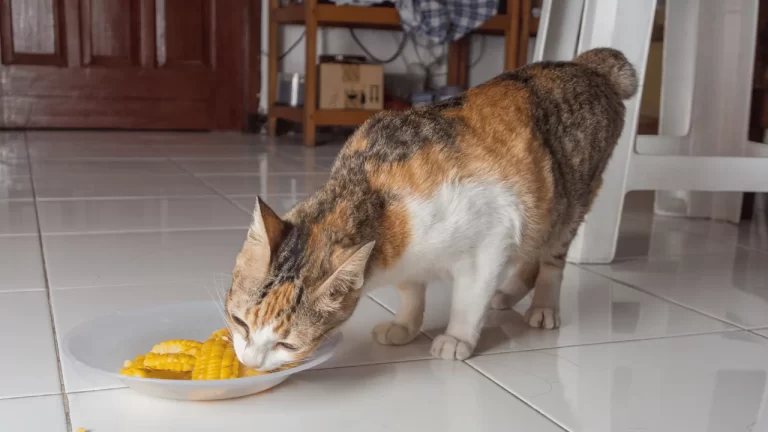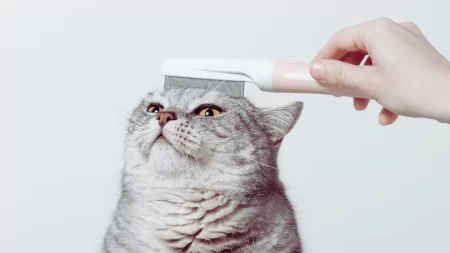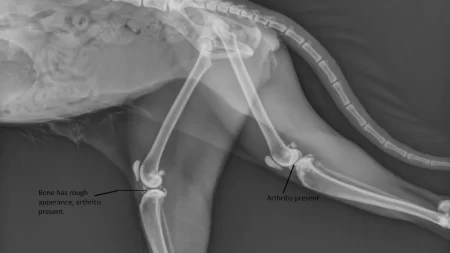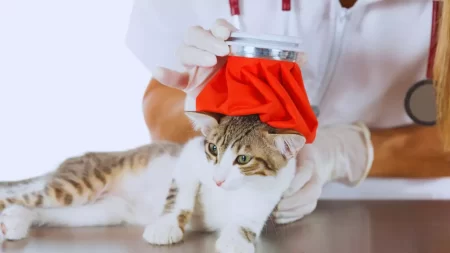A cat not eating much but still acting normal can be puzzling and concerning for cat owners. While a healthy cat should have a good appetite, a decreased appetite doesn’t always signal an emergency. There are many potential reasons why your cat may not be eating as much, some more serious than others. Being aware of the common causes and implementing solutions to entice your cat to eat again are key.
Common Mild Causes for a Cat Not Eating Much but Acting Normal
Here are some common, more benign possible reasons for your cat eating less but otherwise acting like their usual self:
Disliking the Food
Cats can be notoriously picky eaters. If you recently changed your cat’s food brand or flavor, they may be turning their nose up at it. Cats prefer not to have their diets changed abruptly. Try transitioning more slowly by mixing a little of the new food in with the previous food at first. Also be sure to stick to high-quality cat foods that are rich in protein and nutrients.
Nausea from Vaccinations
It’s not unusual for cats to feel temporarily nauseous after getting vaccinations. This side effect should pass within a day or two. Make sure your cat has easy access to water to stay hydrated. You can also try offering bland foods like boiled chicken or yogurt to settle their stomach.
Respiratory Infection or Allergies
Sniffles from a respiratory infection, allergy irritation, or irritation from inhaling smoke or dust can make cats feel less than hungry. Your cat may have drainage or coughing. Check for any nose or eye discharge and contact your vet if symptoms persist more than 2-3 days.
High Outdoor Temperatures
When the weather is hot outdoors, it can dampen your cat’s appetite. Make sure your cat has access to plenty of fresh, cool water. Keep your home air-conditioned and feed cats frozen treats to help cool them down. Their appetite should bounce back when temperatures drop.
More Severe Causes for a Cat Not Eating Much but Acting Normal
While the previous causes are more mild and temporary, here are some more potentially serious medical reasons for appetite loss in cats:
Dental Disease
Dental disease like gingivitis, resorptive lesions, or broken/infected teeth can make eating painful or undesirable for cats. Your cat may dip their food and shake their head or drool. Schedule a vet dental exam if your cat has bad breath or other signs of dental problems.
Stomach and Digestive Illness
Issues like gastrointestinal obstruction, inflammatory bowel disease, pancreatitis and other stomach/digestive issues can make cats feel too sick to eat. Vomiting, diarrhea, and abdominal pain may accompany appetite loss. Diagnostic tests like bloodwork, imaging, and endoscopy can check for GI problems.
Stress and Anxiety
Major changes, travel, loud noises, new pets, and other stressors can cause cats to lose their appetite due to anxiety. Try to minimize stressful triggers. Use calming aids like pheromone diffusers and calming treats. Hand feeding can also relax anxious cats.
Medication Side Effects
Certain medications like chemotherapy drugs, antibiotics, steroids or pain medications can lead to appetite changes as a side effect. If your cat started a new medication recently, let your vet know about the appetite and behavior changes. Your vet may adjust the dosage or switch to a different drug.
Cancer
Feline lymphoma, leukemia, mammary cancer and other cancers unfortunately can lead to decreased appetite in cats. Along with appetite loss, also watch for vomiting, diarrhea, weight loss and lethargy. Diagnostic tests like bloodwork, imaging and biopsies can detect cancer.
Kidney, Heart, and Liver Disease
Underlying kidney, heart, and liver conditions can make cats feel too poorly to eat well. Initial subtle signs like appetite loss may progress to weight loss, vomiting, diarrhea, lethargy. Diagnostic bloodwork and imaging help determine organ function.
Solutions for Getting a Cat to Eat Again
If your cat is not eating due to one of the above causes, here are some tips for tempting their appetite back:
Changing the Food
Buy a few new high protein, meat-rich canned and dry foods to see if any entice your cat. Warm the canned food to bring out the aroma. Avoid poor quality and grain-heavy foods.
Trying Appetite Stimulants
Cat appetite stimulant medications can be prescribed by your vet to increase hunger. Mirtazapine is commonly used and can kickstart cats into eating again.
Heating up the Food
Warming up your cat’s regular food can make it more aromatic and appealing. Gently microwave wet food for 8-10 seconds or warm dry kibble soaked in water. Just test that it’s not too hot before feeding.
Changing the Feeding Time and Location
Sometimes feeding cats earlier, later, or in a new location from their dish can jumpstart their appetite. Try feeding them some hand-fed treats or a meal on your lap.
In summary, a cat not eating much but acting normal can result from minor causes like food aversions or nausea. But it can also stem from more problematic illnesses in cats like dental disease, cancer, and kidney disorders. Getting to the root cause with your vet is key, along with coaxing your cat to eat with proven tips like warming up their food and providing tempting new diets. With patience and care, your cat’s appetite should perk back up.







